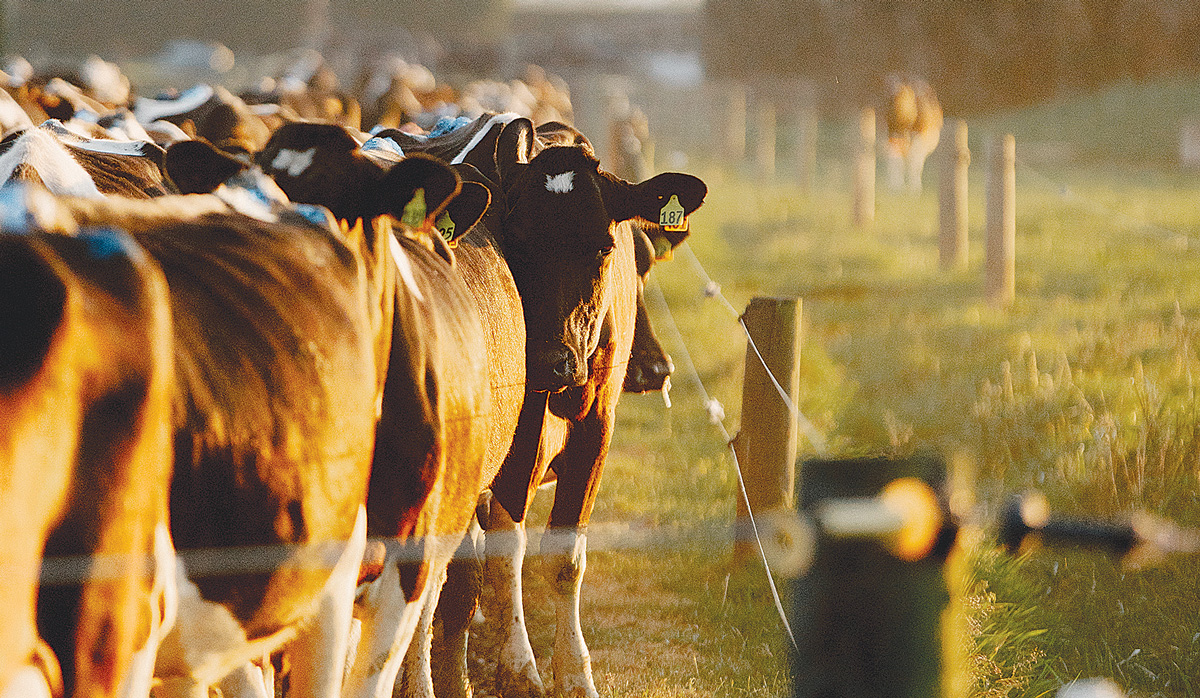LIC lifts half-year revenue on strong demand for dairy genetics
Herd improvement company LIC has posted a 5.2% lift in half-year revenue, thanks to increasing demand for genetics.
Outgoing LIC chairman Murray King says the time is right to pass the baton to the next generation.
King, who steps down from the role later this year, has chaired the farmer-owned genetics company for 11 years. He joined the board in 2009.
But King's connection with LIC goes beyond his board tenure. He served on the Shareholders Council and worked as a LIC AB technician before that.
"It's been a fantastic journey and a most enjoyable one," he told Dairy News.
"We are a genetics company, and every generation is better than the last one. So, if you believe in genetics I should get out of the way and let the next generation come through."
King says that LIC has been around for ove 100 years and done a lot for the dairy industry.
"I think we often forget how much we have achieved. Year by year we think we are not making progress but in the long term if you look at it, we are doing things now you wouldn't have thought possible many years ago," he says.
He points out that 20 years ago, LIC was inputting data manually, herd records were sent backwards and forwards after herd texts for input into Minda. These days, farmers have apps on their mobile phones.
"Farmers are working around the paddock and making decisions on the spot, looking at animals and entering dates - that stuff is quite revolutionary," he says.
Real advances have also been made with herd testing.
LIC collects about 11 million milk samples from farms every year and until now the samples have been manually tested. The tests, done four times a year on farms, help farmers judge the performance of each cow and also test the disease status of each animal.
LIC has been doing the work for the last 50 years. After many years of trying, LIC installed robots to do the task two years ago.
 |
|---|
|
LIC collects approximately 11 million milk samples from farms every year. |
"Now robot automate the weighing and sampling process at our Hamilton and Christchurch laboratories," says King.
King pays tribute to LIC's workforce for their passion in serving farmers and the dairy industry.
"At the end of the day, it's a team effort. It's more than one person."
King has dairy farms in North Canterbury and Nelson and won't be sitting idle - there's work to be done on the farms. He is also a cornerstone shareholder in Appleby Farms Ice Cream and serves on the board of Waimea Community Dam Ltd, Waimea Irrigators and Cawthron Institutes.
Corrigan Sowman, a farmer director on the LIC board, has been appointed chair-designate and will succeed King at the conclusion of the annual meeting.
Chief executive David Chin said King's long-serving contribution will leave a lasting legacy at LIC and in the wider dairy sector.
The 5+ A Day Charitable Trust has launched a collection of affordable recipes designed to turn everyday vegetables into seasonal stars.
Jane Mellsopp has been confirmed as the new Government Appointee to the New Zealand Meat Board (NZMB).
To celebrate the tenth anniversary of its annual Good Deeds competition, Rabobank will give away $100,000 to improve rural community hubs, schools, clubrooms, and marae across New Zealand.
Agricultural and veterinary product supplier Shoof International has appointed Michaela Dumper as its new chief executive.
Federated Farmers is celebrating following the Government's announcement that young farmers will be able to use their KiwiSaver funds to buy their first home or farm.
The Meat Industry Association of New Zealand (MIA) today announced that Chief Executive Officer Sirma Karapeeva has resigned from the role.
OPINION: Staying with politics, with less than nine months to go before the general elections, there’s confusion in the Labour…
OPINION: Winston Peters' tirade against the free trade deal stitched with India may not be all political posturing by the…